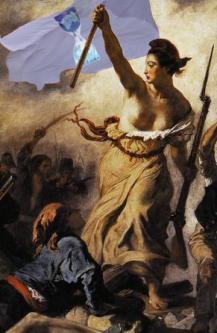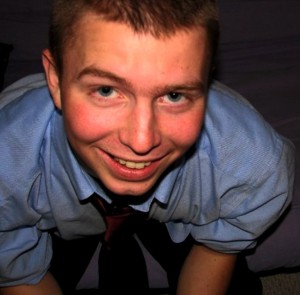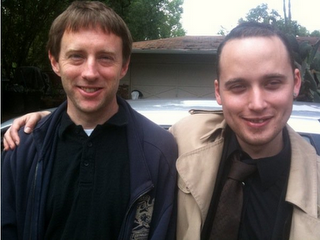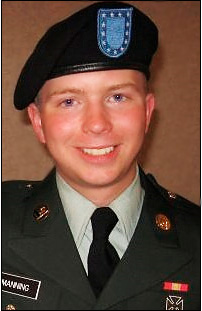
James Madison once said, "Knowledge will forever govern ignorance; and a people who mean to be their own governors must arm themselves with the power which knowledge gives". Madison recognized that accurate knowledge is essential for each person to take charge of their own lives. With the explosive growth of social media like Twitter, Facebook and YouTube, we now have access to more information than any other time in the history of this planet. Through the Internet, pictures, news and ideas travel around the globe like the speed of light. Social networks are creating avenues of free communication that move beyond centralized systems of information distribution.
WikiLeaks's chief editor, Julian Assange pointed to Madison's idea that pertinent information is critical for the public to perform as a check and balance to those in power. Elsewhere he spoke of how concealed information has the greatest potential for just reform because those who hide it spend a lot of energy and resources in that concealment for a reason. He pointed out that this signal of suppression is a sign of opportunity and that exposing this information could lead to reform. The online collective Anonymous is also standing up for freedom of speech and assembly and for the conviction that public control of the flow of information is essential for any society to guard against the inevitability of corruption.

In mid-September, Occupy Wall Street began in downtown Manhattan. For over a century, Wall Street has represented wealth and political power. Now, the streets of the financial district that only months before gleamed with the facade of enduring capitalism were flooded by ‘occupiers’, revealing the truth behind the broken promises of equal opportunity and corrupt excess of corporate America.
Here were people from all walks of life, foreclosed and unemployed, students with debts and those who struggle with a pay-or-die medical system. As the people marched with a mixture of jubilation and outrage against the plutocratic takeover of power, the glorified spectacle of the American Dream crumbled in the background.
No one can deny that the Occupy Movement struck a chord with the rank and file of America as it quickly spread nationwide. A couple months in, students at UC Berkeley pitched tents on the Mario Savio steps in front of Sproul Hall. When UC police came to dismantle the tents, students linked arms, standing up for their right to freely express themselves. Facing them, armed police violently jabbed them with sticks. This contrast became obvious to the world immediately as the YouTube video of the police attack went viral.

Prophets have existed since ancient times. Religions and cultural traditions from time immemorial have acknowledged their existence. Traditionally, prophets were seen as those who play a role of forecasting epochal change in society through their messages and insight.
In moments of crisis, people look for prophets. With expanding environmental degradation, political corruption and deepening economic turmoil, where can we find prophets in this modern age of crisis?
Many regard prophets as those who see the future and receive a vision. Yet, there is more to acting prophetically than this.
Prophets can be found in unexpected places. In a combat zone, where life and death converge, one can be closest to the threshold between past and future. The acts of war resisters, veterans and soldiers who from out of their moral convictions choose not to carry on killing or support war can be seen as prophetic.
There are soldiers who refused to be deployed as a result of a moral awakening. They stand at a threshold between a certain reality and the potential to transform it. It is like the voice of Dr. King was speaking to the core of their being when he said:
Cowardice asks the question, ‘Is it safe?’ Expediency asks the question, 'Is it politic?' But conscience asks the question, ‘Is it right?’ And there comes a time when one must take a position that is neither safe, nor politic, nor popular but because conscience tells one it is right.
The Telegraph this evening ran a story on tomorrow's Wikileaks book by the Guardian editors David Leigh and Luke Harding - just one of several books in a publishing run by Wikileaks' media partners. Among the revelations forthcoming in that volume, we are told, is the rather stale information that Bradley Manning is alleged to be Wikileaks' anonymous source for Cablegate and the War Log releases.
The authors, David Leigh and Luke Harding, of The Guardian, name Specialist Bradley Manning, the soldier being held in a US military jail, as the alleged source of the information which was passed on to The Guardian by WikiLeaks.
While Rayner attempts to present this information as if some new information was being disclosed in the book, it appears, in fact, that we will learn nothing new from it. As the facts stand, Bradley Manning is still the "alleged" source of the information. He has not been convicted of the acts with which he is charged, and all of the evidence in favour of those charges yet available to the public is highly speculative.
The distinction between reportage which mentions Manning as "Wikileaks' source" and that which mentions him as "Wikileaks' alleged source" is of some importance, since to the extent that newspapers - for whatever reason - elide this difference, public opinion might be swayed in such a way as to incriminate Manning, and to prejudice his trial. It is therefore important that media organizations treat the distinction with care.
The last 7 days have seen numerous developments in the Bradley Manning story, which indicate clear problems with the official line on Manning's detainment and on the criminal investigation into Manning's charges. We have also been given insight into the management of the Brig at Quantico, and into the process by which the United States government discourages supporters of causes it find troublesome. (For the complete background on the Bradley Manning story, please see FDL's excellent timeline, here.)
Manning on Suicide Watch
Last week, as summarised in this Jane Hamsher post on FDL, Bradley Manning's conditions were decidedely worsened when Quantico Brig Commander James Averhart moved him to suicide watch - a move allowing his confinement in conditions equivalent to solitary confinement, while ostensibly being "for his own good."
For over five months, Bradley Manning has been held under Prevention of Injury (POI) watch at the Quantico Brig against the recommendations of three forensic psychiatrists. Manning’s attorney, David Coombs, has filed an Article 138 Complaint under the Uniform Code of Military Justice, asserting that this represents an abuse of Brig Commander James Averhart’s discretion.
In a development which may cast new light on yesterday's incidents at Quantico military prison, NBC reports that "U.S. military officials" indicated that Bradley Manning was placed on suicide watch last week by Brig Commander James Averhart, in a violation of procedure.
The officials told NBC News, however, that a U.S. Marine commander did violate procedure when he placed Manning on "suicide watch" last week.
Military officials said Brig Commander James Averhart did not have the authority to place Manning on suicide watch for two days last week, and that only medical personnel are allowed to make that call.
The official said that after Manning had allegedly failed to follow orders from his Marine guards. Averhart declared Manning a "suicide risk." Manning was then placed on suicide watch, which meant he was confined to his cell, stripped of most of his clothing and deprived of his reading glasses — anything that Manning could use to harm himself. At the urging of U.S. Army lawyers, Averhart lifted the suicide watch.
National Law Journal: Jason Ching: Journalism WikiLeaks Style
Jason Ching surveys the prospects of a prosecution by the United States Government against Julian Assange, as a response to its recent document releases. The article is detailed, and considers U.S. law in detail, touching also on the case against Bradley Manning. Ching is not altogether favourable to Wikileaks, nor does he conclude that Wikileaks will avoid all legal liability, but his conclusion is that Wikileaks' proximity to the news and publishing industry is such that it will avoid the more drastic of the prosecutory efforts currently underway.
In summary, let's sweep away the tendentious arguments that Assange should not be extradited to the United States or that it is a violation of due process or other constitutional rights to prosecute him. Any fair analysis of the Espionage Act shows that he is chargeable, and yet any fair analysis of the political reality indicates that he is untouchable. The administration is faced with an impossible dilemma — WikiLeaks is joined at the hip with The New York Times et al., and its unofficial policy against charging news organizations protects them all. WikiLeaks, whether acting out of magnanimity or cleverness, cut the major news sources into the deal and in return gained functional immunity from prosecution for espionage.
The Glenn Greenwald / Kevin Poulsen exchanges this week have centred around a dispute over the alleged Bradley Manning / Adrian Lamo chat logs that form the sole evidence currently implicating Manning in leaking classified information.
As a little more background into Lamo's reliability at the time the chat logs were published, here is a June 22, 2010 thread on Fairfax Underground where someone posted another leaked chat log involving Lamo's wife and Nadim, a person Lamo refers to as a "disgruntled fan".
The original poster also includes the portion of the chat logs which Lamo claims he leaked to Wikileaks, further claiming they then "outed" him as their source. This thread is discussed in an article in DailyTech which contains an update at the end when they discovered that Lamo had actually outed himself "in the form of a podcast interview Lamo gave to an Australian blog site".
All of the evidence into the mental state and reliability of the sole informant in this case raises the question of why chat logs, in the hands of a self proclaimed hacker, passed on to a journalist who professes great respect for the hacking skills of this source, are being treated as reliable legal evidence. In what format were they provided to Wired (and the DoJ)? Was there third party monitoring? Why did Wired believe these logs, knowing their source? Why should anyone?
The Wired rebuttal to Glenn Greenwald's article yesterday is online. It is written by both Kevin Poulsen and Evan Hansen, each making their own points as follows.
The Case for Privacy
–Evan Hansen, Editor-in-Chief
A Litany of Errors
Rasch, who worked for the Justice Department in Washington D.C., left government service in 1991. I had two prosecutors in my phone-hacking case: David Schindler in Los Angeles and Robert Crowe in San Jose, California.
-Kevin Poulsen, Senior Editor
By my assessment, this very long, two author rebuttal has one newsworthy point, which is the last. This was the reference Greenwald used.
Update: Greenwald comes back here and provides more sources and dates for the Poulsen-Rasch connection here. He also states, and supports, that he was not aware of Jacob Appelbaum's association with WikiLeaks when he wrote the article in question.
The wonderful database of research into the Manning-Wikileaks prosecution evidence is growing at FireDogLake. They have given us the basic timeline of events, they merged all of the published portions of the chat logs into one version, and then documented everything that Lamo and others had said about the contents of the logs that were not contained in previously released versions here, and they have collected the key Wikileaks-Manning articles here.
They are now working on compiling transcripts for each video/audio Adrian Lamo interview. Already complete and well worth reading are the June 17th, 2010 interview with Glenn Greenwald, parts one and two, and several other key interviews. Thanks once again to FireDogLake for exemplary journalism, because in their own words:
The transcribed data will be used by Marcy Wheeler, Glenn Greenwald and others to try and piece together what actually happened — and hold journalists to a higher standard of more responsible coverage. We’ll also use it to work up a more detailed and extensive timeline of events.
Because it doesn’t appear that the New York Times and other marquee media outlets are going to stop printing Adrian Lamo’s ever-evolving gibberish like it was gospel until they are all able to see, in painful obvious detail, how his story keeps morphing over time.
 The story of Bradley Manning's arrest has had one crucial detail missing for the last six months. The chat logs allegedly between Adrian Lamo and Bradley Manning have had 75% of their alleged content redacted by the journalists allowed access to them, and the details of the initial contact between Manning and Lamo have never been understood. While the NY Times is content to run a front page article detailing testimony from a mentally unstable ex-felon who is suddenly remembering details that directly contradict what he stated last fall, other journalists have dug much deeper.
The story of Bradley Manning's arrest has had one crucial detail missing for the last six months. The chat logs allegedly between Adrian Lamo and Bradley Manning have had 75% of their alleged content redacted by the journalists allowed access to them, and the details of the initial contact between Manning and Lamo have never been understood. While the NY Times is content to run a front page article detailing testimony from a mentally unstable ex-felon who is suddenly remembering details that directly contradict what he stated last fall, other journalists have dug much deeper.
Glenn Greenwald continues to call for an end to the chat logs suppression by Wired, as he also continues to pursue the relationships between Wired, the FBI, and Adrian Lamo (the sole provider of evidence against Bradley Manning). A few things we now know, courtesy of Greenwald and the sources he references, about Lamo, his friend Kevin Poulsen who published the chat logs story, and their accomplice Mark Rasch who put Lamo in touch with federal law authorities in order to inform on Manning:

The U.S. Army has launched a new task force to further investigate various details underlying the case of Private First Class Bradley Manning, who has been in pre-trial confinement since last May. The task force was ordered by Army Secretary John McHugh and will be led by Army Lt. Gen. Robert Caslen Jr.
The Army confirmed the new investigation, but wouldn't release details. An Army official familiar with the investigation told McClatchy that the six-member task force has been given until Feb. 1 to complete a report that will look at everything from how Pfc. Bradley Manning was selected for his job and trained to whether his superiors missed warning signs that he was downloading documents he had no need to read.
The report could change how the Army — the largest distributor of government security clearances — grants access to government documents as well as lead to recommendations of charges against soldiers who worked with Manning and may have been aware of his activities.
Manning was first detained in Iraq in May, where he was stationed as an intelligence analyst with the U.S. Army; he was charged in July and transferred to a Marine Corps Brig in Quantico, Virginia and immediately placed in solitary confinement.

There have been some attempts in the last week to create a controversy regarding Wikileaks' support for Bradley Manning and his legal defense fund. As anyone watching the news will recognize, Wikileaks has had difficulties in the last months obtaining and accessing their funding, but they are as committed to supporting Bradley Manning as always and have issued the following statement:
We will honour what we have pledged. We are quite strained right now and do not have full access to our limited resources, however, we have forwarded £10,000 (sterling) for the moment and informed Mr Coombs (Bradley's lawyer) about the transactions and it will take a few days to go through.
As acknowledged in the article linked above, Wikileaks' support for Manning has already resulted in substantial support for his defenders:
Loraine Reitman, a member of the group’s steering committee, shied away from placing blame on WikiLeaks.
“WikiLeaks is the reason we’ve been able to get so much money and donations,” she told Threat Level. “They’ve been linking to us and tweeting about us, and every time they do it, donations come in.”
In their latest attempt to find legitimate grounds for charging Julian Assange with a crime, US federal prosecutors have landed on the idea of charging him as a conspirator through a plea bargain that has been offered to Pfc. Bradley Manning. The plea bargain would have Manning name Julian Assange as a fellow conspirator to the leaks, which include the now infamous Collateral Murder video of April 2007. The video shows a US helicopter attack on civilians in Baghdad in which the victims included children and members of the press.
Julian Assange denies having had any contact with Private Manning, insisting that he has "never met or even spoken" with him. The New York Times reports that "among materials prosecutors are studying is an online chat log in which Private Manning is said to claim that he had been directly communicating with Mr. Assange using an encrypted Internet conferencing service." Assange is said to have provided Private Manning with access to a dedicated server, which would in turn be used for uploading the leaked files to Wikileaks.
The 29 November edition of The Nation features an article by Jonathan Schell on the "war- and torture-system" revealed in the Iraq war logs, and the moral imperative that drives people like Bradley Manning and Julian Assange in the face of such
"Faced with this particular and general knowledge, Manning felt "helpless," he told Lamo. "That was a point where I was... actively involved in something that I was completely against." In sum, Manning found himself in the classic, excruciating dilemma of the decent person enmeshed in an abhorrent system, not as a victim but as a perpetrator. By following the rules, he would be an accomplice of torture. Only by breaking them could he extricate himself."
Read the full article here: The Nation
Theme by Danetsoft and Danang Probo Sayekti inspired by Maksimer